The all-girl Muslim metal band smashing through Indonesia
They're uprooting gender and religious stereotypes along the way

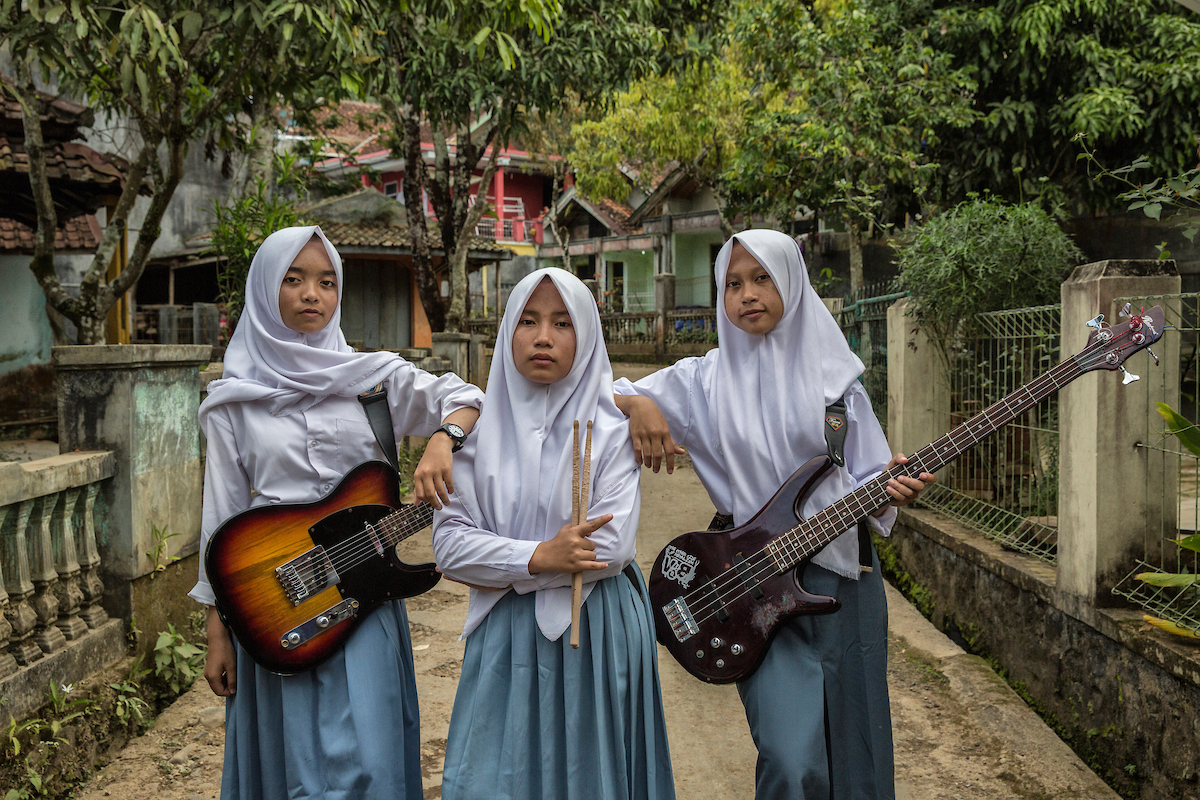
A free daily email with the biggest news stories of the day – and the best features from TheWeek.com
You are now subscribed
Your newsletter sign-up was successful
Thrashing guitar riffs, throbbing bass licks, and banging drum cymbals resound as the lead singer howls into the mic. The crowd forms a mosh pit, screaming fans go wild, and the band members, visibly energized, smile and bang their heads as they tear through another performance.
Though this may seem like a typical rock concert, Voice of Baceprot is anything but prosaic. Smashing their way through Indonesia's music scene, this teenage, all-girl, hijab-wearing heavy metal trio is uprooting gender and religious stereotypes.
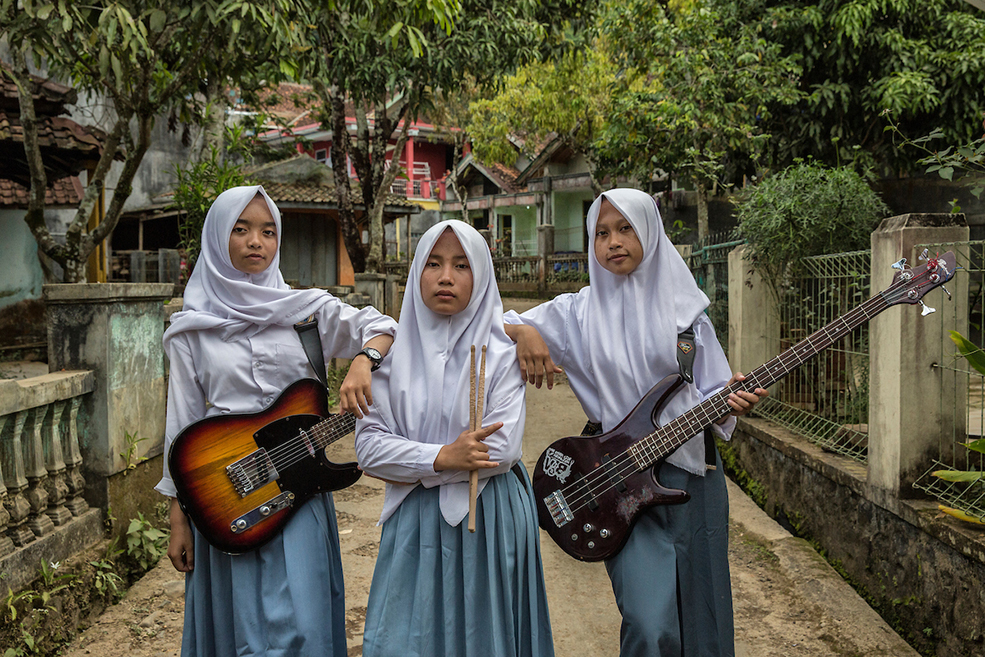
Hailing from Garut, a conservative village in West Java, VoB's three members — singer and guitarist Firdda Kurnia, 17, bassist Nidi Rahmawati, 16, and drummer Euis Siti Aisyah, 17 — had never even heard of metal music nor played any instruments before 2014, the year they formed the band. Their parents are rural farmers; during the day, the girls studied at an Islamic school. That year, while perusing their music teacher's laptop, they serendipitously stumbled upon a trove of metal music. There was an instant connection.
"We fell in love when we first heard metal music," Kurnia said in an interview. "For us, metal is media to show our critical voices. Metal music matches with the determination in our souls."
Fixated on mastering this newfound passion, the girls began practicing every day after school for hours with guidance from their music teacher. Soon they were performing locally, playing complex riffs and rhythms on par with people with years of experience.
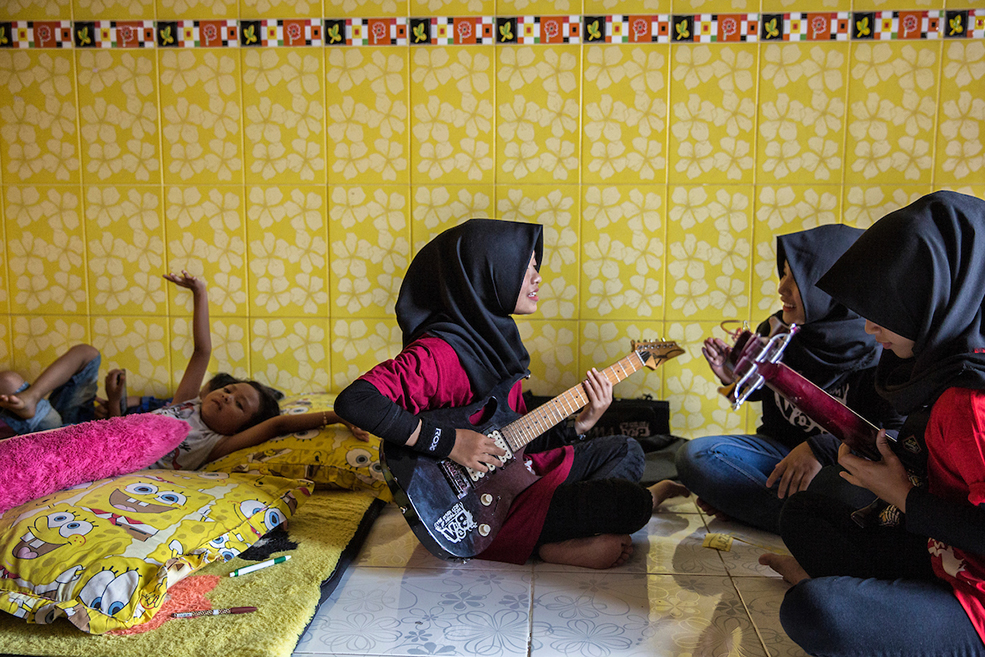
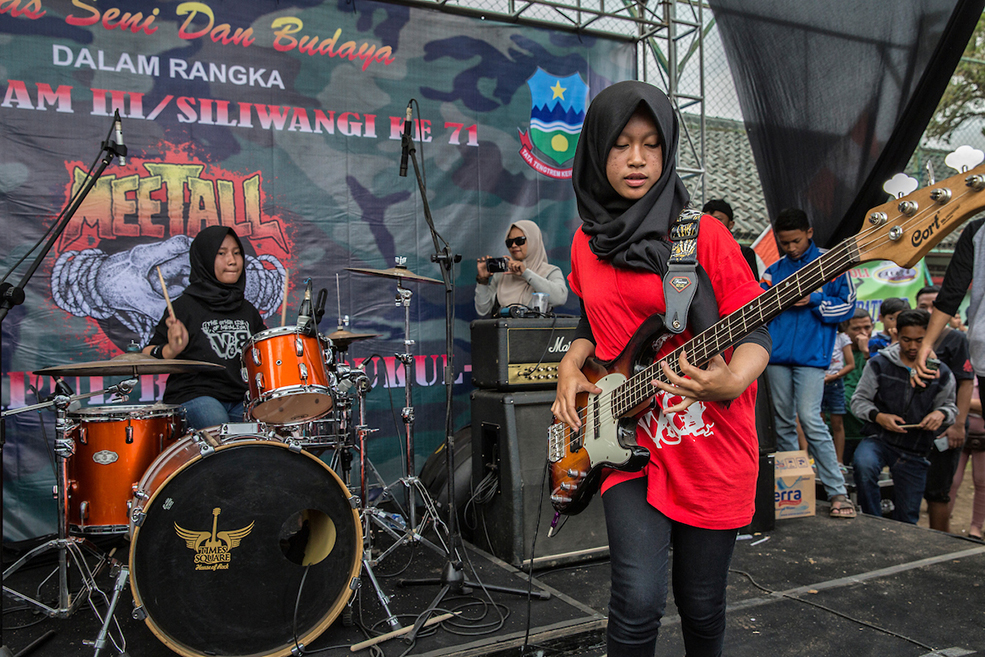
Not everyone, though, was pleased. Their parents initially forbade them from playing, creating tension at home. The girls also received countless threats on social media from religious hardliners who perceive metal to be devil music and not appropriate for women. One night after a recording session, attackers threw stones wrapped in degrading messages at them as they escaped on bicycles.
"They told me that I should take off my hijab," Kurnia told the South China Morning Post while pointing to her social media feed. "[They said] that it's blasphemous to wear a hijab while playing metal music."
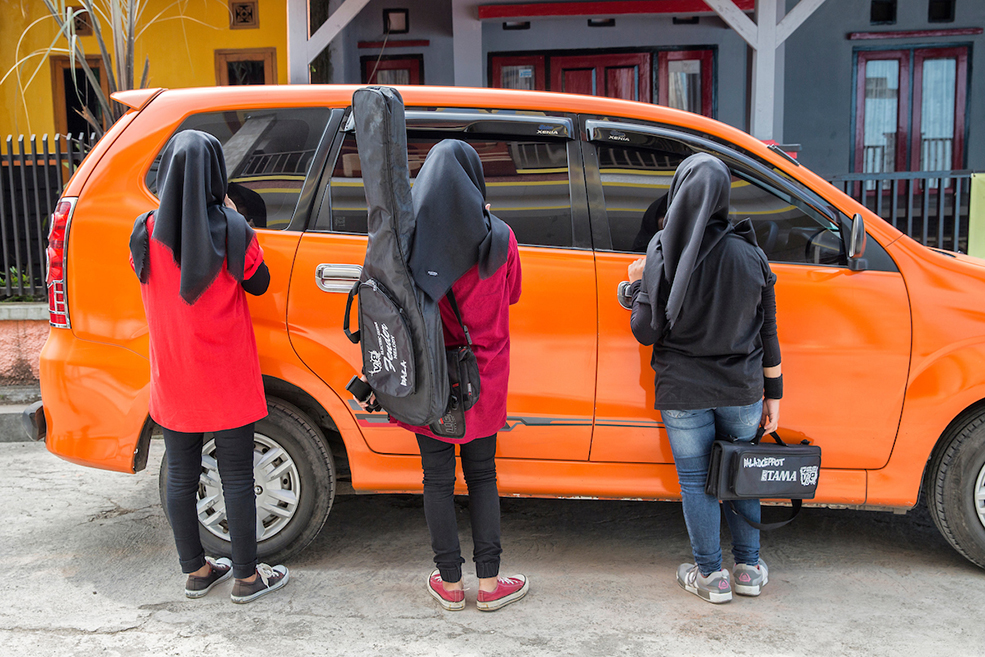
Kurnia didn't allow the backlash to stop her from pursuing her dream. Nor is she less devoted to her religion simply because she chooses to engage in a sphere where Muslim women like her are not widely seen.
"For us, metal is just a musical genre," Kurnia told The Week. "We play metal music, but we don't leave salat [daily ritual prayers]; we keep wearing hijabs, as well as our other [religious] obligations."
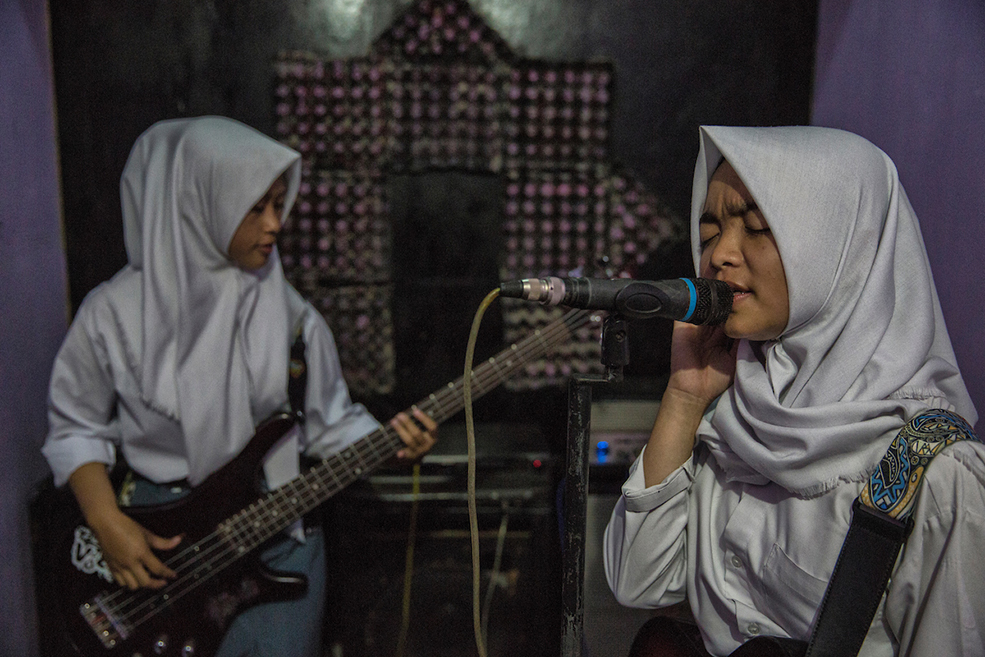
Outside of pockets of conservative strongholds in the world's largest Muslim-majority nation, most Indonesians practice a moderate form of Islam. Religion is often mixed in with mainstream culture, including music. For example, prayer breaks are incorporated into the annual Hammersonic metal festival, the largest of its kind in southeast Asia. VoB and other metal artists also often change lyrics when covering bands like Metallica to make the songs more suitable for their religion and culture.
Indonesia itself has a burgeoning metal scene — one of the largest in Southeast Asia, the South China Morning Post reports. The genre began taking off in the 1990s and was used as a form of resistance against the decades-long military dictatorship of Suharto. Under his oppressive regime, explicit opposition to the government often resulted in imprisonment or death. Nonetheless, metalheads sprinkled political themes and sublime references to national issues in their songs, which helped foster a consciousness of opposition and provided the social infrastructure where activism could be sustained. According to ethnomusicologist Jeremy Wallach, "their scene was part of the cultural ferment that contributed to the toppling of that regime."
In keeping with tradition, VoB also channels their music as a way of resistance, singing songs about the state of the education system, religious tolerance, and climate change.
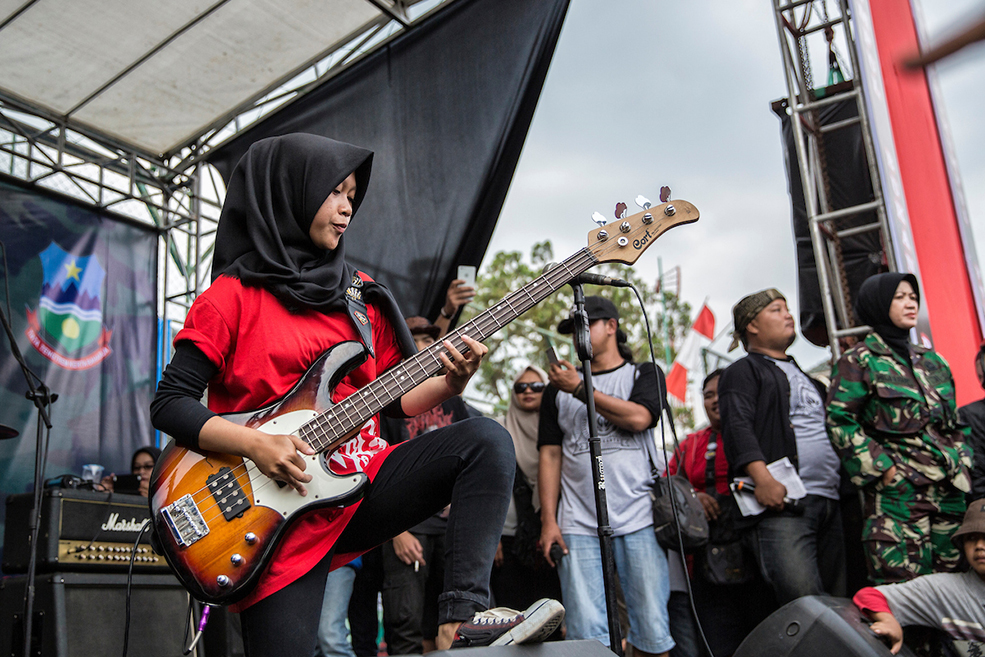
"I think they are really talented," photographer Putu Sayoga told The Week in an interview. Hearing about an all-girl Muslim metal band in the news, he traveled seven hours last spring from Jakarta to the Garut military base to experience the VoB phenomenon himself. At that time, they had already performed on national television and were beginning to gain wide recognition and approval from the country. Their parents also rode the wave, eventually giving their full support.
"The crowd was really crazy," Sayoga said. "People were dancing, forming a mosh pit. I felt energized at the concert. It was quite interesting to see the women playing and singing."
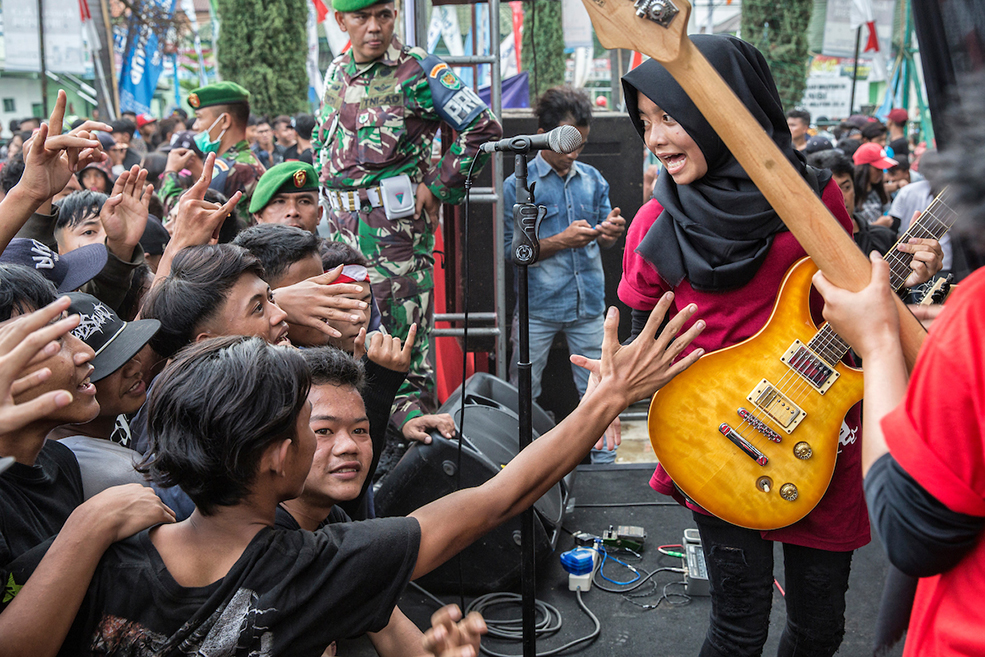
VoB continues to make waves not only in Indonesia but around the world. Kurnia has big dreams for the band: She wants to travel all across the world and introduce people to their music, which the band dubs as "the other side of metalism." She hopes to inspire other girls to break out of their shells.
"Don't be afraid to be different," Kurnia remarked. "We can be great when we become ourselves."
*For more of Putu Sayoga's work, visit his website and Instagram. Follow Voice of Baceprot on Facebook and Instagram.*
A free daily email with the biggest news stories of the day – and the best features from TheWeek.com
Joyce is a researcher at The Week. When not furiously tracking the news, she can be found sky-gazing in parks, painting in her home-made art space, or people-watching in coffee shops.
-
 James Van Der Beek obituary: fresh-faced Dawson’s Creek star
James Van Der Beek obituary: fresh-faced Dawson’s Creek starIn The Spotlight Van Der Beek fronted one of the most successful teen dramas of the 90s – but his Dawson fame proved a double-edged sword
-
 Is Andrew’s arrest the end for the monarchy?
Is Andrew’s arrest the end for the monarchy?Today's Big Question The King has distanced the Royal Family from his disgraced brother but a ‘fit of revolutionary disgust’ could still wipe them out
-
 Quiz of The Week: 14 – 20 February
Quiz of The Week: 14 – 20 FebruaryQuiz Have you been paying attention to The Week’s news?
